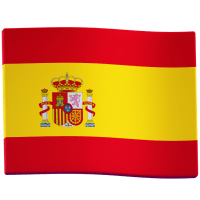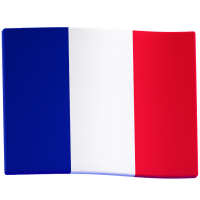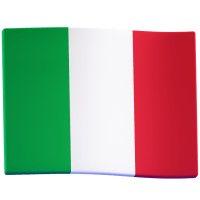French phrases and expressions you can learn today
Start learning the most common French phrases
Basic French phrases
French phrases for information and direction
French phrases for accommodations
French phrases for shopping

Common French phrases and expressions
Top 10 French phrases pronounced by fluent speakers
We have prepared a list of common French expressions that will help you have a basic conversation in French in no time. Let's dig in!
1. Bonjour. = Good morning.
If you find yourself in Paris it is always polite to say “Hi” every morning because French speakers are really sociable. “Good morning” in French is "Bonjour".
Now enjoy being greeted by a native speaker:Bonjour.
2. Bonne après-midi. = Good afternoon.
But what if it's later in the day and you want to greet someone from Canada? Well, “Good afternoon” in French is "Bonne après-midi".
Now listen to how a French speaker would pronounce it:Bonne après-midi.
3. Je m'appelle Mondly. = My name is Mondly.
Let's say your name is Mondly, you are traveling to Paris and meet someone on the street. To introduce yourself you can say "Je m'appelle Mondly" which means "My name is Mondly" in French.
Listen to how a person from France would pronounce this phrase:Je m'appelle Mondly.
4. Je suis ravi de vous rencontrer. = I'm pleased to meet you.
Now that you have introduced yourself, a French speaker would respond "Je suis ravie de vous rencontrer" which means "I'm pleased to meet you" in French.
Listen to a native French speaker saying that exact sentence to you right now:Je suis ravi de vous rencontrer.
5. Comment ça va ? = How are you?
At this point, it might be polite to ask the person you are having a conversation with "How are you?" in French.
It’s really easy to pronounce. Here's how to say it:Comment ça va ?
6. Bien, merci. Et vous-même ? = Fine, thanks. And you?
If, on the other hand, a French speaker asks you first how are you doing, this is how you can answer politely. Apply the unspoken rule of politeness everywhere you go and many doors shall joyously open in your path.
Here's a native speaker showing you how to say it:Bien, merci. Et vous-même ?
7. J’aimerais une bière. = I’d like a beer.
And because you might find yourself in a bar when visiting France you might have to learn how to order a beer in French.
Let a native French speaker show you how it's done:J’aimerais une bière.
8. Je suis désolé. = I'm sorry.
There are times when what you ordered is out of stock, so a bartender might say "Je suis désolé" which means "I'm sorry" in French.
Listen to how it's pronounced:Je suis désolé.
9. A bientôt ! = See you soon!
This is a good way of saying "See you soon" in French to a co-worker from Canada that you are probably going to see the next day.
Delight your senses with a French speaker saying the phrase:A bientôt !
10. Au revoir. = Goodbye.
Let's end with the best way to end a pleasant conversation politely. This is another way of saying "Goodbye" in French.
Here's how a person from Paris would pronounce it:Au revoir.
Basic French question phrases

Qu’avez-vous mangé?:What did you eat?
Je te rencontre au café.: I meet you at the café.
Répétez s'il vous plaît.: Please repeat.
Quand voulez-vous voyager?: When do you want to travel?
Avec qui avez-vous pris un rendez-vous?: With whom did you make an appointment?
Que faisons-nous?: What are we doing?
Tu comprends?: Do you understand?
Où sont les toilettes?: Where is the toilet?

The benefits of learning the most common French phrases first

Immerse yourself in French from day 1
Immersion is one of the most effective ways of learning a new language and not having the means to travel to a French-speaking country shouldn’t keep you from experiencing it. Using Mondly, you’ll immerse yourself in French from day 1 with real French conversations.

Have real conversations in French today
Once you learn a few basic sentences in French, you will have the knowledge to start your first French conversation. That’s why, at Mondly, we’ve created experiences that simulate real-life conversations to get you speaking French in no time.

Become fluent in French quicker
Starting with the basics, we quickly lay a foundation for you to learn more complex French phrases and sentences. We gradually build your French knowledge so you get fluent faster than you could imagine.

Feel how easy to learn the French language can be
Every language experience should start gradually, from the easiest to the more complex concepts. Starting with the easiest and most common French phrases, you will feel confident in your ability to learn a new language. That’s one of the core principles Mondly is built on.











